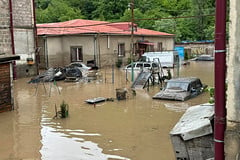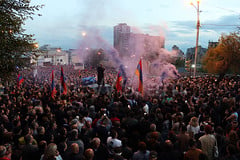
Inflation in the eurozone fell below double digits late last year, bringing some, albeit limited, relief to those struggling with rising costs of living, Politico writes.
According to preliminary Eurostat data released Friday, inflation fell to 9.2 percent in December, well below November's 10.1 percent.
Government programs to curb rising gas prices, as well as lower energy prices and a strengthening euro, contributed to the decline in overall inflation. According to the data, the decline in overall inflation was driven by slower energy price growth, which was 25.7 percent in December, down from 34.9 percent in November.
In contrast, core inflation, which filters out volatile components such as energy and food and is thus considered a benchmark for future inflation trends, continued to rise to a new record of 5.2 percent in December from 5.0 percent in November.
The rise in core inflation should confirm the European Central Bank's plans to continue raising interest rates in bold steps of 50 basis points at upcoming meetings to combat the worst inflation in euro history.
The Baltic states continue to suffer the most from red-hot inflation, with Latvia and Lithuania experiencing rates of about 20 percent. The lowest inflation rate was in Spain at 5.6 percent.






















